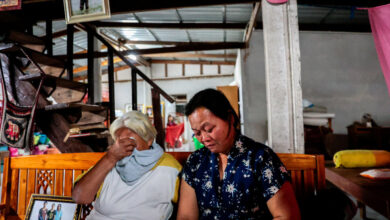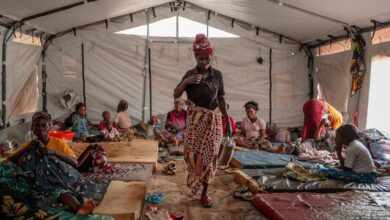Promoting human rights is key to ending AIDS by 2030

Title “Let’s follow the right path to end AIDS” The report highlights how stigma, discrimination and punitive laws hinder progress in the fight against HIV.
Despite significant advances in HIV treatment and prevention, human rights violations continue to hinder access to essential services.
In 2023, 630,000 people died from AIDS-related illnesses and 1.3 million people were infected with HIV.
Challenge human rights
Marginalized communities, including women, girls, and LGBTQ+ (lesbian, gay, bisexual, transgender, queer, and others) individuals, remain disproportionately affected. proportional.
Sub-Saharan Africa clearly illustrates this disparity: every day, 570 young women between 15 and 24 years old infected with HIV, The rate is three times higher than that of male peers.
Globally, 9.3 million people infected with HIV do not receive life-saving treatment.
“Discrimination and violence against girls must be addressed as an urgent human rights and health issue,” said Nomonde Ngema, a 21-year-old HIV activist.
Criminalization hinders progress
Punitive laws targeting marginalized communities exacerbate the crisis. In 2023, 63 countries still criminalize same-sex relationships.
The HIV infection rate among gay men and other men who have sex with men is five times higher in these countries than in countries without such laws.
“Punitive laws and policies prevent vulnerable people from getting the help they need to prevent HIV, HIV testing and HIV treatment.
“Instead of punishing marginalized communities, governments need to protect their human rights,” he emphasized.
UNAIDS 2021 Political Declaration on Ending HIV/AIDS calls for lifting restrictions by 2025, but progress remains slow.
Closing the innovation gap
Scientific breakthroughs, such as long-acting injectable drugs, offer hope but remain inaccessible to many people due to high costs and limited production.
“Life-saving medical tools cannot be considered just as commodities,” said Alexandra Calmy, head of the HIV team at Geneva University Hospitals.
“The revolutionary treatment and prevention options currently being developed must be made available immediately to achieve global reach.”
The report calls for a human rights-centred approach to ensure equitable access to these life-saving innovations.
Voice of change
the UNAIDS The report amplifies views from global leaders, including British singer and songwriter Elton John, Irish President Michael D. Higgins and HIV activist Jeanne Gapiya-Niyonzima.
“As long as HIV is seen as a disease of ‘other people’, not of ‘good people’, AIDS will not be defeated. Science, medicine and technology may be “what” to end AIDS, but Inclusion, empathy and compassion are the ‘how’”, wrote Elton John.
President Higgins echoed this sentiment: “Making a commitment to end AIDS as a public health threat is a political and financial choice. The time to choose the right path is long overdue.”
A global call to action
When the world comes close deadline 2030UNAIDS emphasizes that ending AIDS is not just a health issue – it is a human rights duty.
By addressing inequities and ensuring equitable access to services, the international community can achieve the shared goal of ending AIDS as a public health threat.




